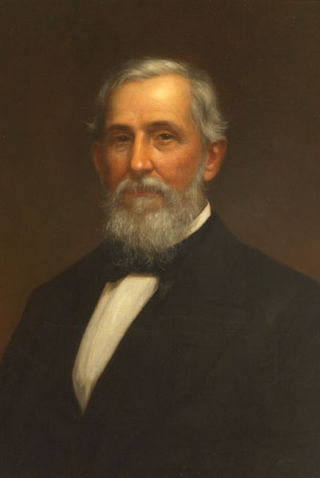Top Qs
Timeline
Chat
Perspective
David S. Walker
American judge and politician (1815–1891) From Wikipedia, the free encyclopedia
Remove ads
David Shelby Walker (May 2, 1815 – July 20, 1891) was the eighth Governor of Florida, serving from 1865 to 1868. He served in the Florida House of Representatives and as Mayor of Tallahassee. He also served as a judge. He was a Whig before shifting parties.
Remove ads
Early life and career
Summarize
Perspective
Walker was born near Russellville in Logan County, Kentucky. He attended private schools in Kentucky and Tennessee and studied law. He moved to Florida in 1837, settling in Leon County. His father was David Walker, a prominent early Kentucky politician who served in the U.S. House of Representatives. David S. Walker was a cousin and close business and political confidante of Florida territorial governor Richard K. Call. He was also related to Florida Senator Wilkinson Call, who was Walker's law partner for several years in the 1850s and 1860s in Tallahassee.
Walker entered politics as a Whig and was elected to the first session of the Florida State Legislature in 1845, serving Wakulla and Leon Counties as a senator. In 1848, he was elected by Leon County to the Florida House of Representatives. In 1849, he was appointed Register of Public Lands and was ex officio State Superintendent of Public Instruction, positions he held until 1854. He advocated and promoted interest in public schools. His efforts resulted in creating public schools in Tallahassee. He served as Mayor of Tallahassee. He was the Know Nothing gubernatorial candidate in 1856 but lost to Democrat Madison S. Perry by 2.6 points.[1] In 1859, he became a Florida Supreme Court Justice.[2] Walker is also known for establishing Tallahassee's first library in the mid-1800s through his private funds in a time where money was not allocated to libraries outside of urban areas, especially in a "rural" state.[3][4]
Remove ads
Governorship
Summarize
Perspective
Before the American Civil War, Walker was a Constitutional Unionist and so had opposed secession. However, when Florida declared secession from the United States in 1861, he supported his state. Following the war, on November 29, 1865, Walker was elected governor unopposed in an election in which newly freed slaves were not allowed to participate.[5] He was inaugurated on December 20 and took office January 18, 1866.[6]
During his governorship, Florida transitioned from the federal oversight and military occupation of Reconstruction to readmission into the Union. Walker was a conservative who attempted to minimize changes to the antebellum social, political, and economic system. He protested the election of the 1868 Constitutional Convention, which was convened to adopt a new government that the Republican U.S. Congress would approve. He ultimately supported the 1868 Constitution when it turned out to be less protective of blacks than initially anticipated.[5]
He did not run for reelection in the 1868 election, the first in which African American men could vote.[7]
He returned to practicing law after leaving the governor's office on July 4, 1868. In 1878, he was appointed circuit court judge, a position he held until his death on July 20, 1891.
Remove ads
Legacy
Tallahassee's first public library is the David S. Walker Library.
See also
References
Sources
External links
Wikiwand - on
Seamless Wikipedia browsing. On steroids.
Remove ads

